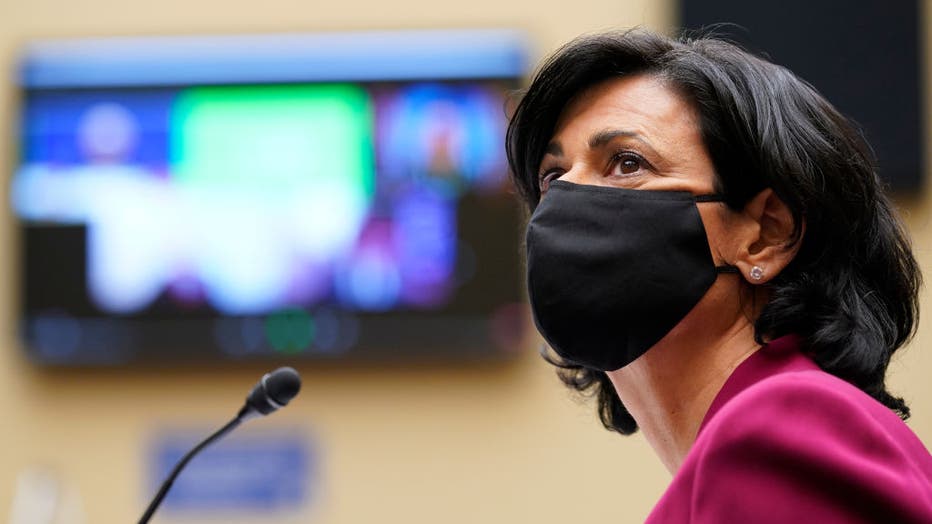CDC to continue recommending masks in all schools, Walensky says
ATLANTA - School-age children could be mere weeks away from being eligible for a COVID-19 vaccine — but the Centers for Disease Control and Prevention (CDC) said their eligibility doesn’t mean the immediate end of wearing masks in schools.
Dr. Rochelle Walensky, director of the CDC, said officials will "continue to recommend masks in all schools for all people in those schools." The reason: time.
When the U.S. rolled out the COVID-19 vaccines for adults earlier this year, it took months for supply to catch up to demand. But shortly after that happened, the vaccination rate plummeted.
And although they were eligible for the vaccine, a significant portion of the population remained reluctant to take the jab.
The White House COVID-19 Response Team said Wednesday it doesn’t expect the supply to be an issue this time around. The U.S. already has 28 million Pfizer doses available for all kids between 5 and 11 years old. Officials are prepared to move 15 million doses within the first week of approval, the Associated Press reported.
RELATED: US details plans to roll out COVID-19 vaccine for children ages 5-11
But the team of experts acknowledged vaccine hesitancy could once again be a roadblock. And Walensky said masking in schools will help prevent outbreaks among those slow to accept the shot.
"As we head into these winter months, we know we cannot be complacent," Walensky said. "We also know that, from previous data, that schools that have had masks in place were three and a half times less likely to have school outbreaks requiring school closure."

Centers for Disease Control and Prevention Director Dr. Rochelle Walensky listens during a House Select Subcommittee on the Coronavirus Crisis hearing on April 15, 2021, on Capitol Hill in Washington, DC. (Photo by Susan Walsh-Pool/Getty Images)
White House COVID-19 coordinator Jeff Zients said many families are eager to get their kids vaccinated. And although he anticipates another round of vaccine hesitancy, he believes those households can be won over through education and convenience.
"As we’ve seen with adults, confidence grows across time," Zients explained. "At the start of the vaccination program, nine months ago, only 34 percent of adults were eager to get the shot. And today, 79 percent of adults have at least their first shot. So, confidence increases across time."
Zients officials will be bringing vaccines to schools, pediatricians’ offices, rural health clinics, pharmacies and children’s hospitals.
The White House is also preparing a stepped-up campaign to educate parents and children about the safety of the shots and the ease of getting them.
This story was reported from Atlanta. The Associated Press contributed to this report.

